Ever wonder why some days you feel unstoppable—motivated, happy, and full of energy—while other days, you’re just kind of… blah? Chances are, dopamine is playing a major role. Known as the “feel-good” neurotransmitter, dopamine drives motivation, focus, pleasure, and even the little spark that helps you get out of bed in the morning. When your dopamine levels are balanced, life just feels easier, more rewarding, and a lot more fun.
But here’s the thing: in today’s stressful, fast-paced world, many people struggle with low dopamine without even realizing it. Whether it’s endless scrolling, poor sleep, junk food, or chronic stress, a lot of modern habits quietly drain our brain’s dopamine supply. The good news? You don’t need a prescription or a magic pill—there are plenty of natural ways to boost dopamine using the right foods, daily habits, and science-backed supplements.

The Science of Dopamine and Brain Chemistry
Dopamine is a neurotransmitter—a brain chemical that carries messages between nerve cells. It’s most famous for creating the “reward” feeling you get from achievements, learning, or anything pleasurable (like a delicious meal or a win at work). But dopamine is about much more than pleasure—it’s the engine behind motivation, attention, movement, and emotional resilience.
Dopamine production depends on a steady supply of building blocks from your diet (especially the amino acid tyrosine), as well as vitamins, minerals, exercise, and lifestyle. Low dopamine doesn’t just sap your mood; it can lead to procrastination, brain fog, cravings, and even low energy.
Signs Your Dopamine Levels Might Be Low
Not sure if your dopamine needs a boost? Watch out for:
-
Low motivation or lack of enthusiasm
-
Difficulty concentrating or finishing tasks
-
Fatigue and feeling “blah” all the time
-
Sugar or junk food cravings
-
Mood swings or mild depression
-
Lack of pleasure from activities you used to enjoy
If this sounds familiar, your lifestyle might be sabotaging your brain’s dopamine system—but with some simple changes, you can turn things around.
Foods That Naturally Boost Dopamine
Food is your first (and best) source of dopamine-building nutrients. What you eat every day can make a real difference in your motivation, focus, and overall happiness.
Amino Acid-Rich Foods for Dopamine Production
Dopamine is made from the amino acid tyrosine. Foods high in protein are naturally rich in tyrosine, so include:
-
Lean meats: Chicken, turkey, and beef
-
Fish and seafood: Salmon, tuna, shrimp
-
Eggs: A powerhouse for brain health
-
Dairy: Cheese, yogurt, and milk
-
Soy products: Tofu, tempeh, and edamame
-
Legumes: Beans, lentils, and peanuts
These foods supply the raw materials your body uses to make dopamine, so aim for some protein with every meal.
Antioxidants and Micronutrients for Brain Health
Dopamine neurons are sensitive to damage from free radicals (unstable molecules produced by stress, poor diet, and pollution). To protect and fuel your brain:
-
Fruits and vegetables: Especially bananas (which contain dopamine precursors), berries, avocados, and leafy greens
-
Nuts and seeds: Almonds, walnuts, flaxseed, and pumpkin seeds
-
Whole grains: Oats, quinoa, and brown rice
-
Dark chocolate: (in moderation) contains flavonoids that support dopamine signaling
Vitamins and minerals to prioritize for dopamine production:
-
Vitamin B6: Found in salmon, bananas, spinach, and chickpeas
-
Vitamin C: Citrus, bell peppers, and strawberries
-
Iron: Lean meats, spinach, lentils, and fortified cereals
-
Zinc and magnesium: Pumpkin seeds, nuts, beans, and seafood
Best Meal Ideas for Dopamine Support
-
Breakfast: Greek yogurt with berries and pumpkin seeds
-
Lunch: Grilled salmon salad with leafy greens and avocado
-
Snack: Banana and a handful of walnuts
-
Dinner: Stir-fry tofu with broccoli, bell peppers, and brown rice
-
Dessert: A small square of dark chocolate
Eating a colorful, nutrient-dense diet is one of the easiest ways to keep your dopamine (and motivation) high.
Everyday Habits That Increase Dopamine
You can literally train your brain to make more dopamine by changing up your daily routines. It’s not just about food—it’s about how you move, rest, and reward yourself.
Exercise and Movement for Brain Chemistry
Moving your body is a dopamine supercharger. Regular exercise—especially activities you enjoy—raises dopamine levels and increases the number of dopamine receptors in your brain.
-
Best bets: Brisk walking, cycling, swimming, dancing, yoga, and strength training
-
Even 20–30 minutes a day can make a noticeable difference in mood and motivation
If you hate traditional workouts, just move more: stretch, take the stairs, or do some chores with your favorite playlist.
Sunlight, Sleep, and Circadian Rhythm
-
Sunlight: Natural light boosts dopamine and helps regulate your circadian rhythm (body clock). Aim for 15–30 minutes outside every morning.
-
Sleep: Poor sleep crushes dopamine production. Prioritize 7–9 hours per night and a regular bedtime routine.
-
Wake/sleep consistency: Try to wake up and go to bed at the same time each day, even on weekends, to keep dopamine flowing smoothly.
Mindfulness, Music, and Meaningful Rewards
-
Meditation and mindfulness: Reduce stress hormones and help balance dopamine.
-
Listening to music: Activates dopamine pathways and instantly lifts mood.
-
Celebrate small wins: Setting achievable goals and rewarding yourself (with a treat, walk, or shout-out) gives your brain a healthy dopamine hit—no junk food needed!

Supplements for Supporting Healthy Dopamine Levels
If you’ve dialed in your food and habits but want an extra boost, some supplements can support dopamine production—just use them wisely.
Vitamins, Minerals, and Herbal Options
-
L-tyrosine: Direct precursor to dopamine, useful for times of high stress or fatigue.
-
Vitamin B6 and B12: Essential for dopamine metabolism (many people benefit from a quality B-complex).
-
Magnesium and zinc: Support enzyme function in dopamine production.
-
Rhodiola rosea: An adaptogen that supports dopamine and reduces stress.
-
Mucuna pruriens: Contains natural L-DOPA, a direct building block of dopamine (but start low and talk to your doctor first).
-
Ginkgo biloba: May support blood flow and dopamine signaling.
Nootropics and Adaptogens for Dopamine Balance
Some brain supplements support healthy dopamine activity, focus, and mood:
-
L-theanine: Found in green tea, balances dopamine and promotes calm alertness.
-
Lion’s mane mushroom: Supports brain health and neuroplasticity.
-
Curcumin: The active compound in turmeric, may support neurotransmitter balance.
Always buy from reputable brands, start with the lowest dose, and track your response.
Safety, Dosing, and What to Avoid
-
Avoid “mega-dosing”—more isn’t always better and can disrupt natural balance.
-
Check for interactions if you take medications, especially for mood or mental health.
-
Skip unproven “quick-fix” pills: Real dopamine support comes from consistent habits, not overnight cures.
Lifestyle Changes for Long-Term Dopamine Health
Building sustainable dopamine health is about creating a life that supports your brain from every angle.
Stress Management and Social Connection
-
Chronic stress depletes dopamine and saps motivation. Find what works for you—meditation, breathwork, creative hobbies, or regular downtime.
-
Meaningful relationships are one of the biggest natural dopamine boosters. Make time for friends, family, and positive social experiences.
Setting Goals and Building Positive Routines
-
Set small, actionable goals: Completing tasks (even little ones) gives your brain a reward hit.
-
Create morning and evening rituals: Consistency helps train your brain for balanced dopamine production.
-
Learn new things: Novelty and learning fire up dopamine and keep your brain growing.
Dopamine thrives on a sense of progress, connection, and purpose.
Conclusion: Creating a Dopamine-Friendly Life
Dopamine isn’t just about chasing pleasure—it’s about finding joy, motivation, and meaning in daily life. You don’t need drugs or extreme hacks. With a focus on protein-rich foods, smart supplements, regular movement, sunlight, great sleep, and rewarding habits, you can unlock your brain’s natural drive and keep your mood, focus, and energy high—naturally.
Every healthy choice adds up. Start with one new habit, meal, or morning walk. Your brain (and life) will thank you.
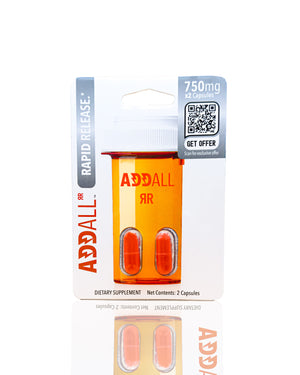
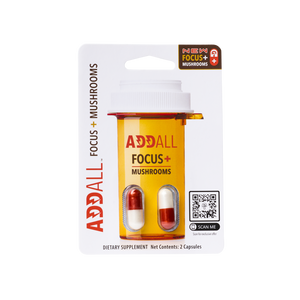


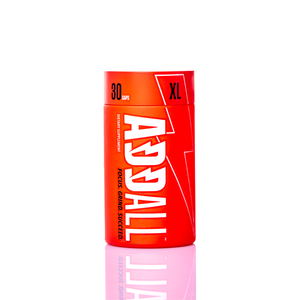
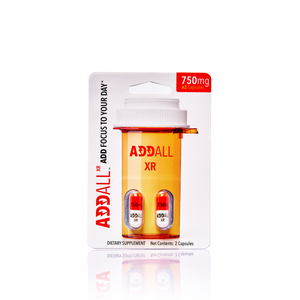


 Addall XL
Addall XL
 Addall XR
Addall XR Addall
Addall
 Addall
Addall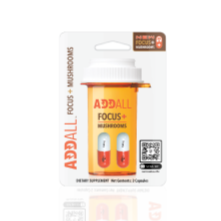 Addall
Addall Addall
Addall merch
merch
 Compare
Compare



















































